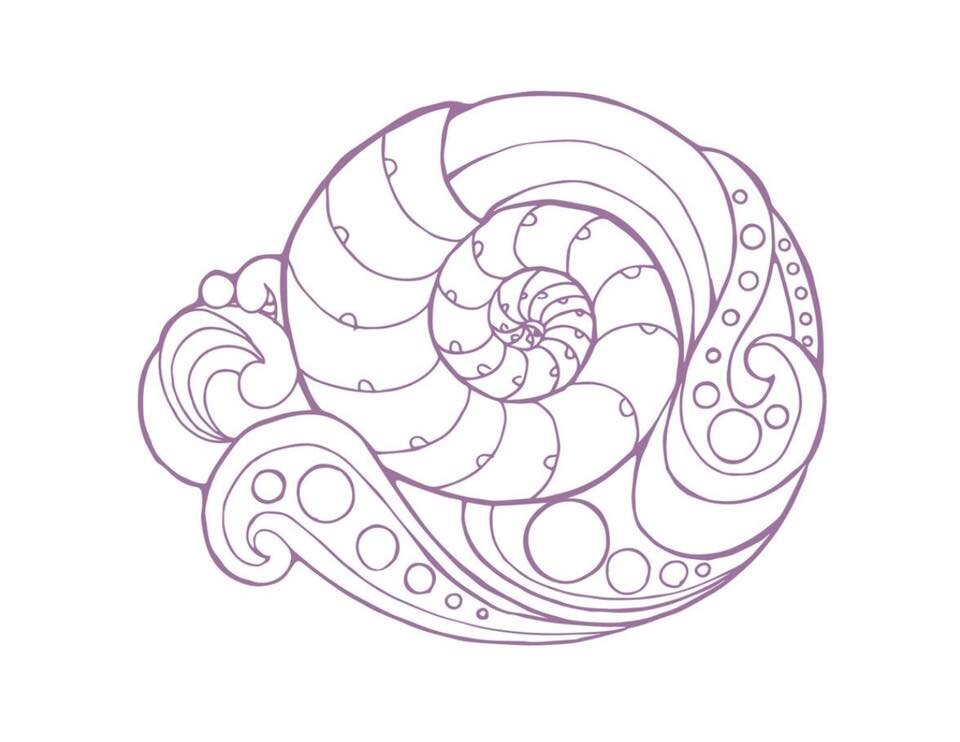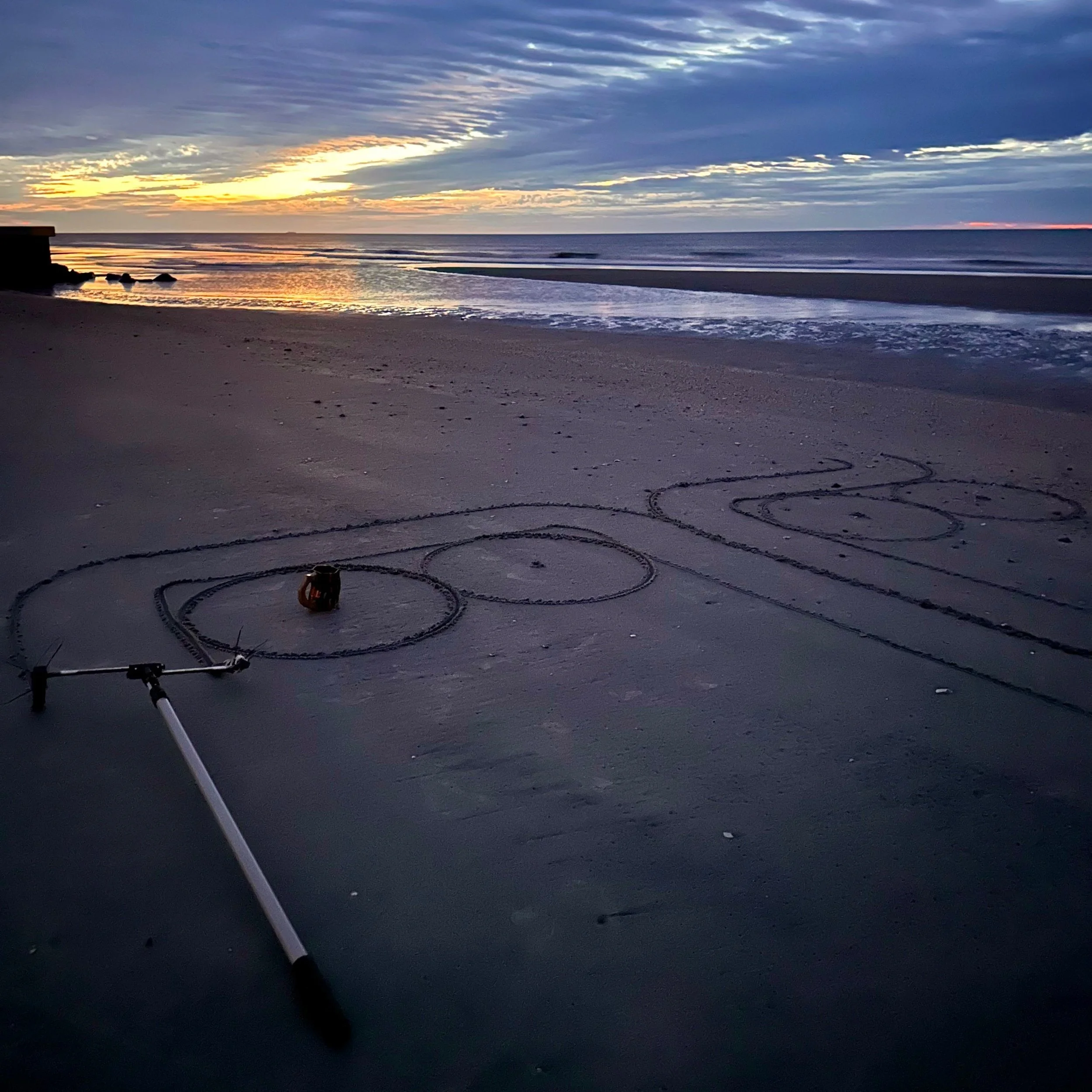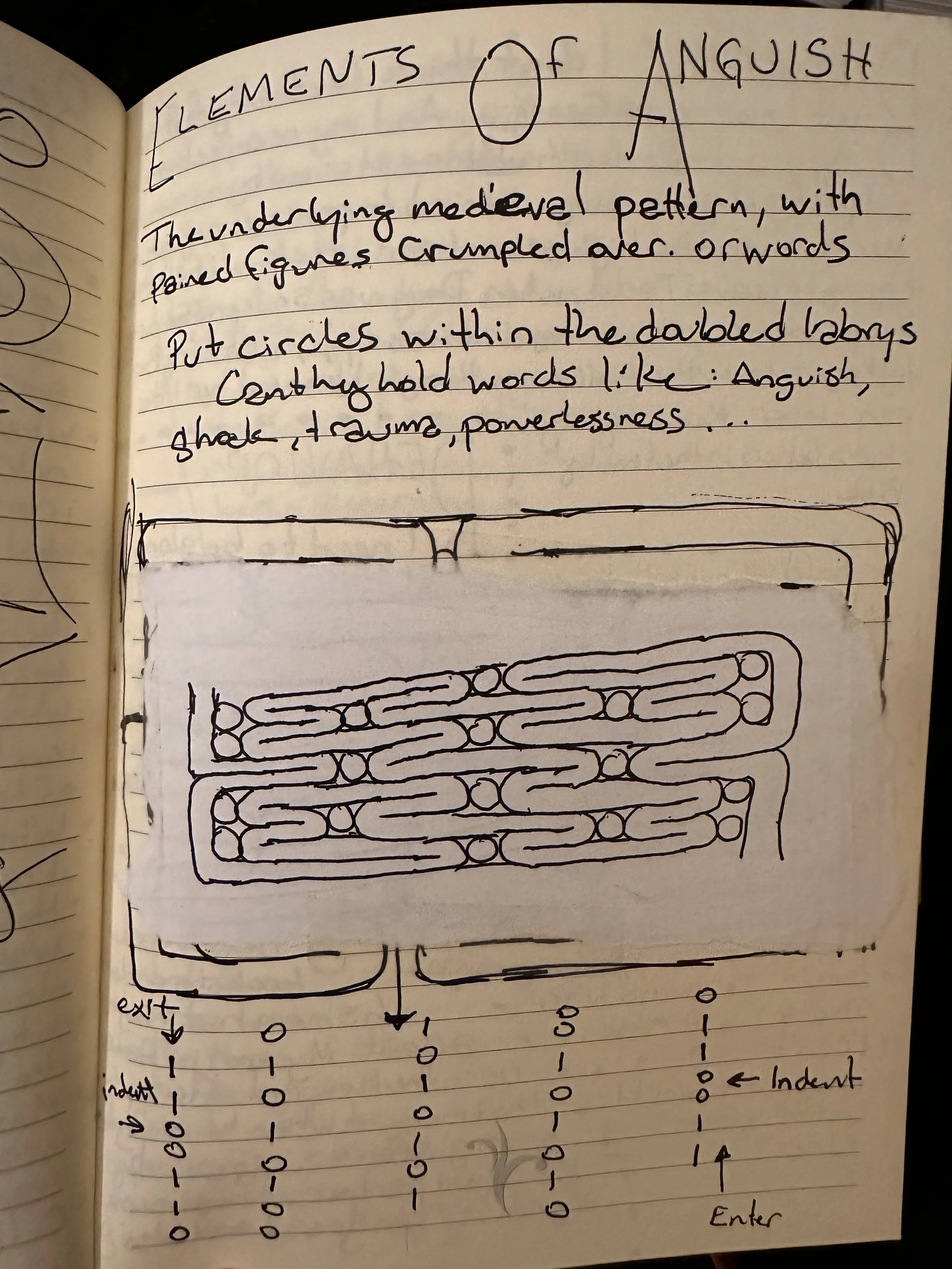Healing Anguish
When I am taken by the keening void of anguish, I am climbing out of my skin, hyperventilating, sobbing uncontrollably, nauseous. I have trouble thinking or articulating my needs and wants.
To be honest, in the moment, I probably have no idea what I need or want.
Which is exactly why spending 15 months working my way through all of the 87 emotions in Brené Brown’s Atlas of the Heart has been such a crucible for me.
I can get stuck in loops of anguish, as if this feeling and I are alone in the universe.
As if the universe can’t even continue beyond the shock of this traumatic, unbearable experience that I am completely powerless to stop.
Across my timeline, I have sought to not just remember but relive moments of anguish, deliberately trapping myself in circles of pain.
Sitting within these circles of anguish has felt so important to me in the past. They are defining moments. Although my ongoing exploration of the emotion leads me to wonder:
“What do I hope to gain from re-traumatizing myself?”
Healing.
It’s the simplest answer, and also the most complex.
I now know that when I am in anguish, I need conflicting things. I need to be alone and also held, though I will probably be inconsolable. I need to hide and also be witnessed. To let off the damp heat and simultaneously dwell within it. To relive it and also numb myself in a maze of not my own making.
Just being more aware that my default behavior in these moments is liable to be erratic—a long pause and sudden volte-face—I find a tiny light of power to face the darkness.
The labyrinth I chose to represent the emotion of anguish is the well-loved medieval pattern, split open and laid bare.
Like Tranquility, I fouled up so badly in my initial sketch that I taped in a fresh attempt. The medieval pattern is renowned for its meanders, its ability to make the walker feel truly lost on the journey.
If you removed the 18 circles in my sketch to the left, stretched the path’s edges to touch each other, created a center around the entry/exit in the top left corner, and then wrapped the entire patterns counter-clockwise around the center, you would have the exact design laid out on the floor of Chartres Cathedral.
Flattening the pattern like this turns the labyrinth into a processional, where a walker enters in one path and exits through the opposite corner of the design.
Below my taped-in revision are my zeroes and ones, a shorthand I developed to track an open path versus a labrys, where the design takes a 180-degree turn. What really broke my brain was the fact that, in this iteration, the 18 circles are represented by ones.
My first vision was to sketch anguished faces in those 18 circles, or scribe words like shock, trauma, and powerlessness to contemplate from multiple angles.
What happened out on the sand took this pattern even further than I could have imagined…




“These photos illustrate beautifully, that in this emotion, I am not alone.”
As I sketched out the path, five very special humans—Abby, Evelyn, Jenifer, Kaya, and Natalie—began following behind me to deepen the lines and shade in the areas around the circles. Jenifer wrote “Anguish” in curling script.
I invited them—and the other humans out walking the beach at dawn who came to talk to us and walk the design—to fill in a circle. I didn’t need to do any of that myself; it was a gift and an honor to witness their work and receive their stories.
Very soon, the processional nature of the path led Jenifer to mark the opposite side with the word “Healing” to match what we were all doing out in the sand and the salt that day.
Drone video of walking Anguish Labyrinth on Folly Beach
I love how, in the video, you see me walking in the corner closest to the edge of the water. I deliberately positioned that part on a patch of sharp and shelly beach. Walking barefoot was penitence. It awoke all my senses, bringing me painfully and exquisitely present.
“My experiential snapshot of this moment reminds me to seek presence in the midst of anguish. To acknowledge what’s around me and then let it go, the way I allow each of my beach labyrinths to be claimed by the waves. This is how I show self-compassion.”
And, of course on this incredible morning, I took advantage of the tides to build my labyrinth for Self-Compassion on the sandbar, but that’s a tale for another day…




